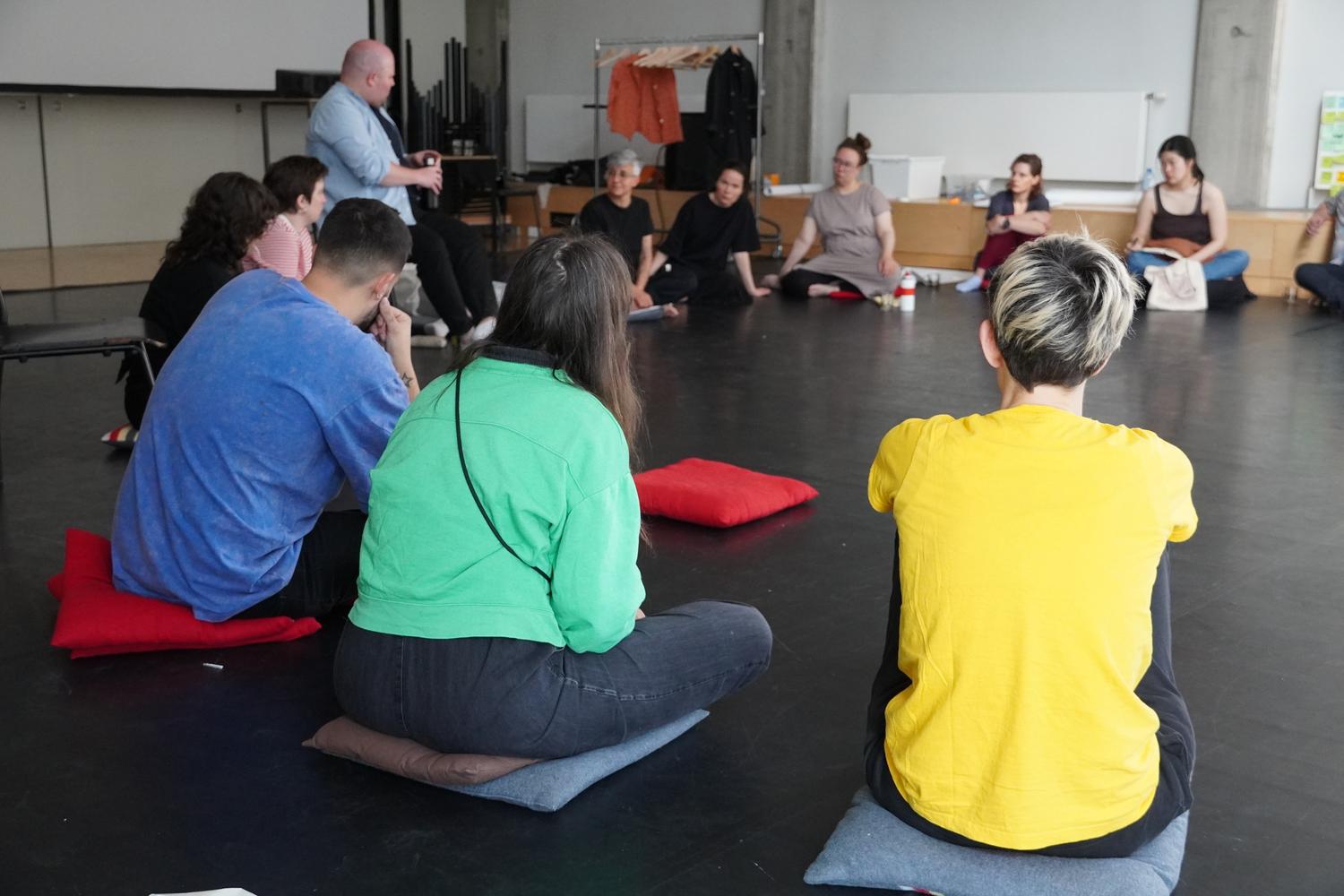
Arpentages
- collective reading
A series of collective book readings focusing on performing art in public space.
A new season of our collective readings is kicking off! We're continuing to attempt to answer the question:
What is public space?
Together, we will take time to read a book about public space and think about how to work in it, create in it, look after it, defend it, by whom and for whom... each time from a unique artistic, social or political perspective.
Arpentage #4
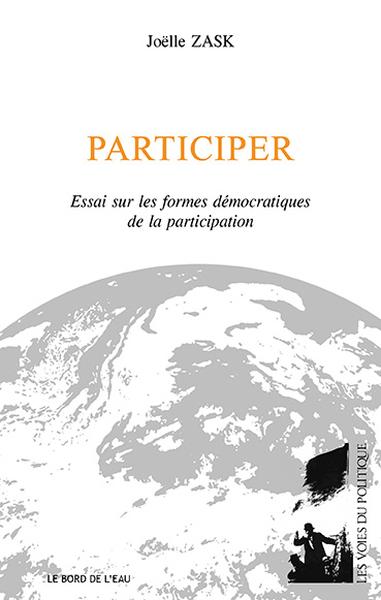
Participer : Essai sur les formes démocratiques de la participation, Joëlle Zask
For this fourth collective reading, we'll be looking at public space from a political, social and fundamentally democratic perspective, with an eye that is both critical and reflexive.
In the arts, in politics, at school, in the workplace, in the press or on the web, the same injunction is addressed to each and every one of us today: to participate.
Yes, but in what, how and to what end? What does participation mean, imply and commit us to? Do we know what it means to participate? Nothing is less certain.
In this essay, we will explore the possible forms of participation, looking at the conditions under which they exist and how democracy is embodied socially, politically and culturally through them.
By outlining their contours and forms, we will see how participation, which is at stake in the very quality of inter-human relations, enables everyone to contribute to the construction of commons, while also benefiting from it. This democratic ideal requires us to constantly redefine public space so that it becomes a genuine place for egalitarian experiences and exchanges.
"Somewhere between philosophy, sociology, political science and aesthetics, Joëlle Zask explores the idea that taking part involves much more than simply intervening in a situation with pre-established rules. She reveals the criteria that enable us to distinguish between superficial, deceptive and manipulative forms of participation - of which there are many - and those that are genuinely constructive for both individuals and a group.
Using examples taken from all kinds of activities - playing cards, voting, appreciating a work of art, discussing, organising a hike, seeking recognition - the aim is to show that participation, properly understood, is identified with the subtle articulation between taking part, giving a share (contributing) and receiving a share (benefiting). In short, the democratic ideal itself."
Joëlle Zask
Joëlle Zask is a philosopher and lecturer at the University of Aix-Marseille and a member of the Institut Universitaire de France. A specialist in pragmatism, social philosophy and participatory democracy, her books include Se tenir sur la terre (Premier Parallèle, 2023), Se réunir, du rôle des places dans la Cité (Premier Parallèle, 2022) and Écologie et démocratie (Premier Parallèle, 2022).
What is an "arpentage"?
An "arpentage" is reading a book in its entirety as a group. We cut the book up and each person reads part of it, and then recounts their part to the rest of the group. This method of reading, which originated in 19th century Italian workers' circles, is part of a popular education approach and aims to share knowledge collectively. Together, the group experiences confronting theoretical books that may seem inaccessible.
When you come to an "arpentage" you become part of a collective learning process.
This also means staying for the duration of the activity, so that we can start and finish reading together.
For whom?
Open to all on registration, no pre-requisites.
To register, send an e-mail to : cifas@cifas.be
The session is in French and the reading time can be adapted to the needs of each individual (number of pages to be read, reading in pairs, etc.), so that it is accessible to as many people as possible.
By whom?
These collectives reading sessions are organised by a small group of artists who met during Constellations, a learning programme on performing art in the city organised by Cifas.
Practical information
Date and time
12/04/2025 at 14:00 (4 hours long)
Place
La Bellone, Rue de Flandre 46, 1000 Brussels
Language
French
Past: Arpentage #3
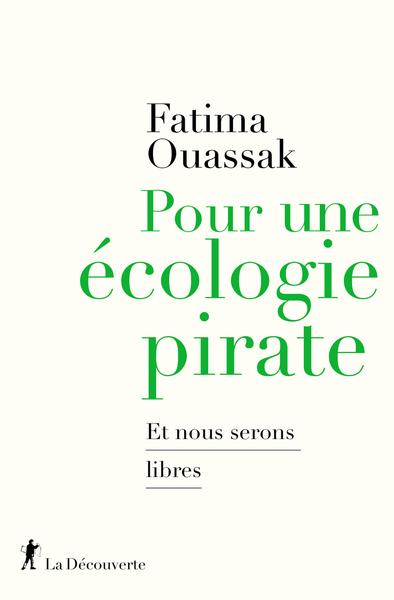
Pour une écologie pirate: Et nous serons libres, Fatima Ouassak
For this third collective reading, we will be looking at the public space from a radical, decolonial - let's even say pirate - perspective: that of the "landless", the inhabitants from North to South, on the road and in working-class neighbourhoods, who are calling for the right to leave, cross, anchor and defend the land, even if it has already been stolen.
"What we lack in Europe today is an ecologist project capable of resisting the policies of suffocation in an increasingly unbreathable world.
A project initiated in working-class neighbourhoods, which would at last link the roots of the land with freedom of movement.
A project that looks to Africa and aims to establish a broad internationalist front against global warming and the destruction of life itself. A project that would make the Mediterranean an autonomous space and a rallying point for mutinies from both North and South.
A project that sets its sights on the liberation of land, the liberation of animals and equal human dignity, all of which are fundamentally linked.
A project that embraces secession in the face of increasingly threatening extreme right-wing forces.
A project that would set sail in search of One Piece, the famous treasure from the manga of the same name, which has become a symbol in working-class neighbourhoods of the thirst for freedom that is growing there.
A project that would put itself at the level of children and seek their well-being and liberation.
This project is one of pirate ecology."
Past: Arpentage #2
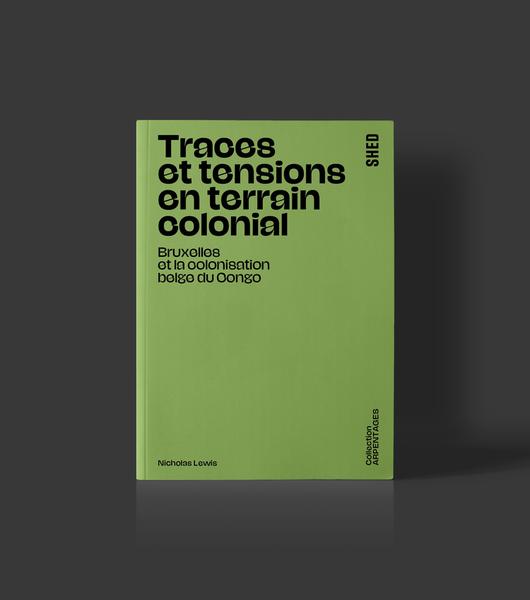
Traces et tensions en terrain colonial : Bruxelles et la colonisation belge du Congo, Nicholas Lewis
For this second collective reading, we propose to delve into the decolonisation of public space in Brussels:
"Traces et tensions en terrain colonial is the fruit of a collective effort. Alongside this independent research, Nicholas Lewis called on several authors and activists from the decolonial and anti-racist field, including Anne Wetsi Mpoma, Véronique Clette-Gabuka, Joëlle Sambi Nzeba, Georgine Dibua Mbombo and François Makanga.
From Etterbeek to Schaerbeek, from Place Royale to Parc du Cinquantenaire, Nicholas Lewis takes us on a walk through the streets of Brussels to examine in depth Belgian society's relationship with its colonial history.
The book radically questions colonial and racial power structures through a political and aesthetic critique of Brussels' public space. It is structured in the form of a guide offering a visual and spatial survey of three communes and two spaces in Brussels."
Past: Arpentage #1
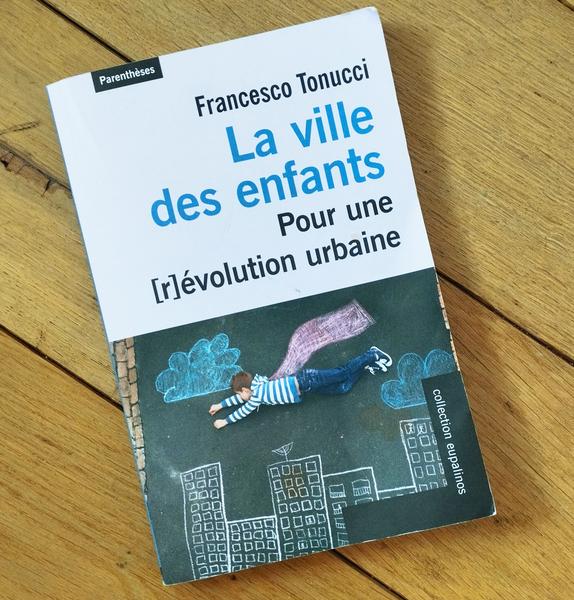
La ville des enfants - Pour une [r]évolution urbaine, Francesco Tonucci
For this first collective reading and to prolong the ever-renewed wonder of car-free Brussels one Sunday a year, we will read Francesco Tonucci's La ville des enfants - Pour une [r]évolution urbaine (Editions Parenthèses, 2019).
‘Offered to the ‘strongest’ citizens and to cars, whose traffic and parking devour public space, the city has gradually become unliveable, aggressive, even dangerous for the weakest, the elderly, the disabled and, above all, children, the bearers of the future. What if we turned things around? What if we gave the city back to pedestrians, to children's play, to meetings and exchanges between generations? The apparently utopian ‘Children's City’ project presented here by Francesco Tonucci has already been implemented in several cities in Europe and Latin America. This book, which details the practical details, proves its feasibility. It's an optimistic contribution to the lively debate on the place of the child citizen in the city.
Past: season 2023-2024
Arpentage #4
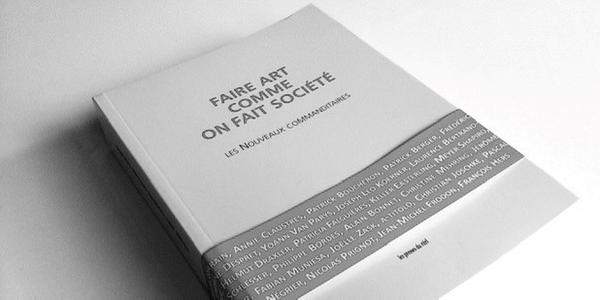
Faire art comme on fait société, Les Nouveaux Commanditaires
This book sets out to explore the links between art and democracy. How can artworks change society? How can citizens be involved in the creation of artworks? How can we understand the relationship between public or private intervention, the market and the spectator? These are just some of the questions that 47 contributions from a wide range of disciplines seek to answer, based both on historical case studies and on a general study of how things work today.
These reflections stem from the birth and development of a radically new mechanism called the Nouveaux Commanditaires. Since the 1990s, this has led to the emergence of an avant-garde art form that is democratic in essence, and whose productions are based first and foremost on the desires of citizens, not just artists. This book and the nine films that accompany it also describe the aims and some of the hundreds of projects that have already been created. A work of debate and a work of combat, it contains the seeds of a complete renewal of our cultural policy, in contrast to the prevailing fatalism.
Published by Les Presses du réel, 2013
848 pages
We will read a selection of chapters out of the 47 contributions
Arpentage #3
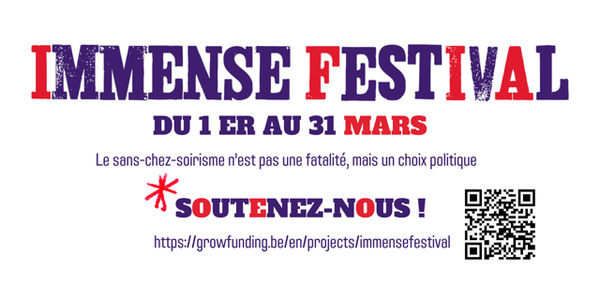
The next "arpentage", is a collaboration with the Syndicat des immenses. It is taking place in the context of their Immense Festival, which runs througout March and aims to raise awareness on homelessness and share the following message : The war against homelessness is too serious to leave “experts” in peace.
Immensité et stratégie, Le Syndicat des immenses & alii
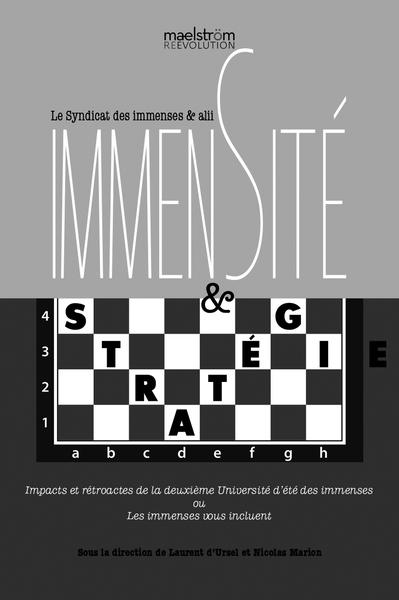
On this occasion, we will read Immensité et stratégie, which comes out next month and whose back cover reads as follows:
Immense is the name, neither stigmatising nor reductive, of people who are inadequately housed or unhoused, previously called homeless, precarious, undocumented, etc.
Syndicat des immenses is the name of a very active union in the Brussels-Capital Region since 2019, representing the voice, struggles and political demands of the immense.
Université d'été des immenses (Summer Univeristy of the Immense) is the name given to the cross-fertilisation and mutual enrichment of the expertise of immenses and academics, workers and politicians, around a number of themes. Each Summer University is preceded and followed by a lengthy process of reflection, culminating in the publication of a book providing a provisional overview of the chosen themes.
"Immensité et Stratégie" is the title of the book published after the second Summer University, held on 18 December 2023 at UCLouvain Saint-Louis Brussels. As well as giving an account of the richness of the event and the debates and reflections that took place there, the book aims to include readers in the immense strategic work that has resulted in the 'politics of immensity'. Hence its subtitle: "The immense include you".
The 3 chosen themes are:
1. Humanimalism is essential
2. Ending injustice or inequality: what's the priority?
3. Inequalities, incuries and other trickeries of the State
"Immensité et Stratégie" is not just the proceedings of the conference that was the second Summer University, but a strategic toolbox with concepts rooted in the topicality of two joint wars: definitively socialising the problem of homelessness and irrevocably establishing in people's minds that it is not inevitable.
Arpentage #2
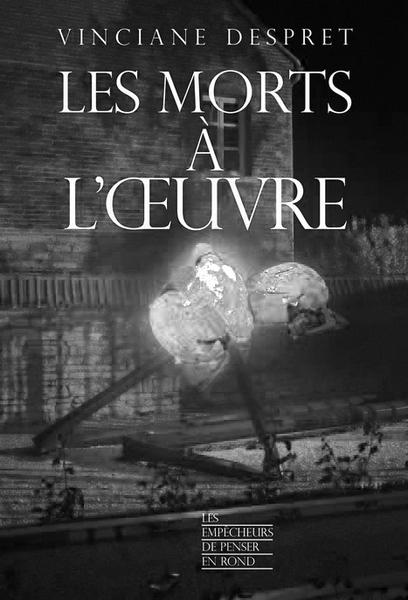
Les morts à l’oeuvre, Vinciane Despret
The dead can inspire the living to action, mobilising those who remain around issues that affect collective life, the erosion of social ties, events that are beyond their control or whose scale or violence could destroy them, annihilate what they hold dear. The dead can help the living to transform the world. In this book, Vinciane Despret tells us five stories in which the dead, near or far, have forced the living to give them a new place. These dead "insist" because there was something unjust in the fate that befell them: victims of violence, commandos in Africa and Provence, political sacrifices to the reason of the strongest... Those who remain have decided to respond to this insistence by commissioning a work through a political and artistic protocol known as the "New Sponsors programme". This protocol involves choosing an artist and deciding jointly on a work of art. It will radically change the way commissioners work. This has nothing to do with mourning in its authoritarian form (when psychological theories call for forgetting). It has to do with life, life that is no longer but still is in another way, life that resists being erased, and this "doing with" provokes an astonishing series of metamorphoses.
Author's biography
Vinciane Despret is a philosopher and researcher in the philosophy department at the University of Liège. She is the author of several seminal books on the animal question, including Bêtes et hommes (Gallimard, 2007) and Penser comme un rat (Quae, 2009). With Isabelle Stengers, she has also published _Les Faiseuses d'histoires. Que font les femmes à la pensée (La Découverte, 2011) and _Que diraient les animaux... si on leur posait les bonnes questions (Les Empêcheurs de penser en rond/La Découverte, 2012,2014).
Arpentage #1
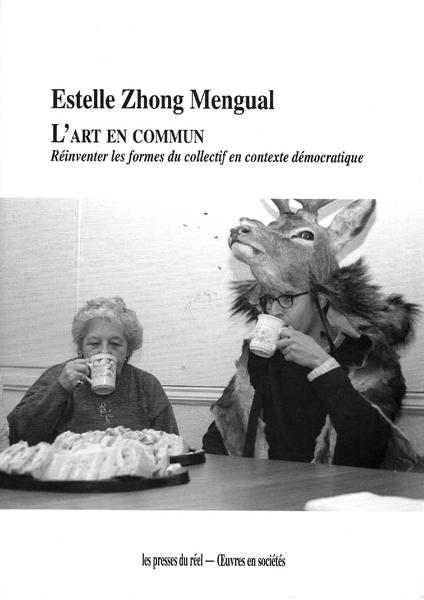
Estelle Zhong Mengual, L’art en commun: Réinventer les formes du collectif en contexte démocratique (2019)
L’art en commun is an investigation of the artistic and political issues surrounding participatory art since the 1990s. Estelle Zhong Mengual focuses on the democratic and neo-liberal context of Great Britain, and looks at artistic mechanisms that propose to 'create in common', in the social space and over a long period of time, and contribute to the reinvention of possible forms of the collective.
Examples include Jeremy Deller, who invites the former miners of Orgreave to take part in a costumed re-enactment of the 1984 English workers' riot, and Javier Téllez, who works with patients from the Tijuana psychiatric hospital to propel a man-cannon across the US-Mexican border.
The notion of "art in common" overturns our conception of art and our aesthetic categories. Above all, it grapples with questions of participation and community, which are among the most crucial issues at stake in current attempts to revitalise democracy and reconfigure the way we live.
L’art en commun: Réinventer les formes du collectif en contexte démocratique (2019), Les presses du réel
Author's biography
Estelle Zhong Mengual is an art historian based in France. Alongside her research on "art in common", she is interested in how we can extend our forms from the collective to the living, in the context of the ecological crisis. In particular, she is working on the constitution of an environmental history of art. She co-edited the book Reclaiming Art - Reshaping Democracy (2017) and is co-author of Esthétique de la rencontre (2018).